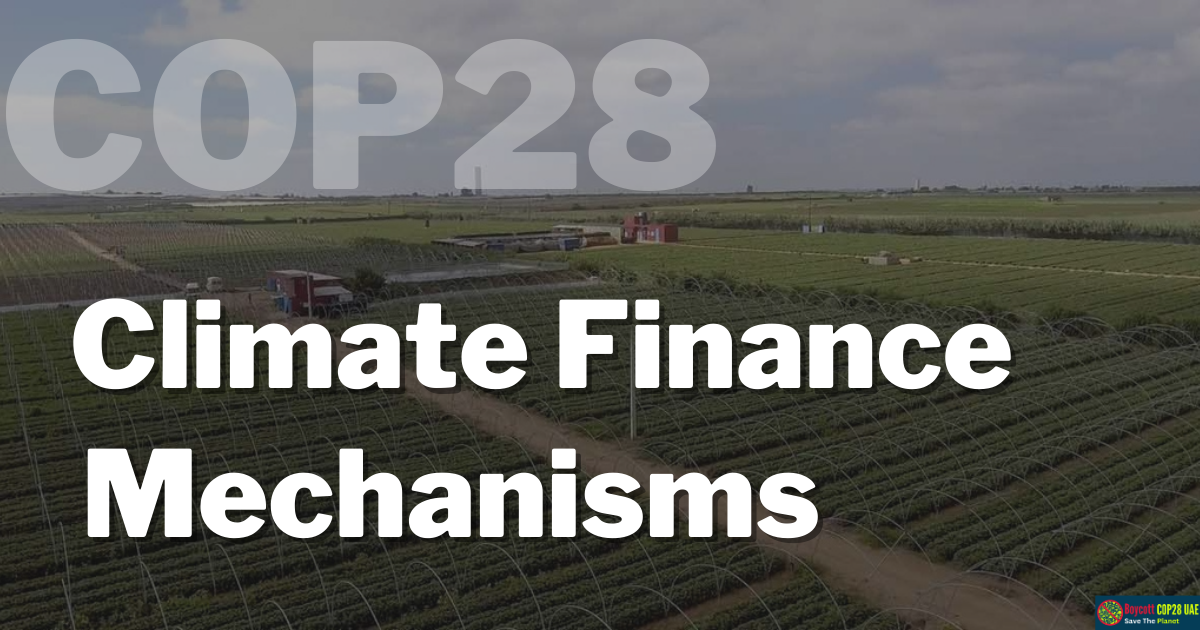The upcoming COP28 conference, scheduled to take place in Dubai, holds significant importance in addressing climate finance mechanisms. Climate finance plays a crucial role in supporting the implementation of climate goals outlined in the Paris Agreement. This article explores the expectations and challenges associated with COP28 and its implications for climate finance mechanisms.
The Importance of Climate Finance
At COP15 in Copenhagen in 2009, developed nations committed to mobilizing 100 billion USD annually by 2020. This financing was intended to support developing countries’ climate action and mitigation efforts. However, these developed countries have consistently fallen short of meeting these funding goals. In 2020 the adaptation funding reached only 83.3 billion USD, failing to achieve the targeted amount.
The Need For Commitment And Trust
The failure to fulfill funding pledges has resulted in a lack of trust among COP signatories. This lack of commitment to financial support undermines the cooperative spirit required to tackle climate change effectively. Addressing this issue and rebuilding trust among all parties involved is essential. The fight against climate change must be carried out in an equitable manner to avoid exacerbating global inequalities.
Stocktaking on The Paris Agreement
COP28 will witness the culmination of the first major stocktaking process on the Paris Agreement, which began at COP26. This process involves assessing the progress made by countries in achieving their climate goals. The results of this stocktaking will shed light on the effectiveness of climate finance mechanisms and highlight areas that require improvement.
Enhancing Climate Finance Mechanisms
It is imperative to enhance climate finance mechanisms to achieve the long-term goals set in the Paris Agreement. The private sector serves an important role in this regard, as it can provide substantial financial resources for clean energy projects and climate initiatives. Public and private collaboration is necessary to bridge the existing funding gaps and accelerate the transition to renewable energy.
Strengthening Global Climate Finance
Multilateral funds, such as the Green Climate Fund, have been instrumental in supporting climate finance flows. However, their financial resources need to be replenished to meet the increasing demands for climate action. At COP28, discussions on strengthening global climate finance are expected to take place, exploring ways to mobilize additional funds and improve the effectiveness of financial flows.
Ensuring Transparency And Accountability
Transparency and accountability are crucial elements of climate finance mechanisms. It is vital to establish clear reporting mechanisms and ensure financial resources are allocated and utilized effectively. COP28 provides an opportunity to strengthen accountability frameworks, encouraging all countries to fulfill their financial commitments and report on their climate finance contributions accurately.
Building Capacity For Climate Action
Capacity building is essential for enabling developing countries to access and utilize climate finance effectively. COP28 should prioritize discussions on capacity-building initiatives, including technology transfer and knowledge sharing. By enhancing the capacity of developing nations, they can better implement mitigation and adaptation projects, contributing to global climate goals.
The Role of UAE Regarding to Climate Finance Mechanism
- The UAE has pledged to contribute $100 billion to climate finance by 2023, but it has only delivered $10 billion so far
- The UAE has been criticized for its lack of transparency in its climate finance reporting
- The UAE is a major producer of fossil fuels, and its emissions are increasing day by day
- This country has not yet ratified the Paris Agreement
Based on these facts, it is clear that the UAE is not a good choice to host COP28. The country has not done enough to address climate change, and its selection as host sends the wrong message to the international community.
Conclusion
COP28 represents a significant milestone in addressing climate finance mechanisms and the overall progress of the Paris Agreement. The conference provides an opportunity to strengthen global cooperation and commitment toward financing climate action. By enhancing transparency, accountability, and collaboration between public and private sectors, COP28 can pave the way for a more sustainable and equitable future. It is essential to mobilize the necessary financial resources and build developing nations’ capacity to effectively tackle climate change challenges. International financing must align with the urgency of the climate crisis, ensuring that climate finance mechanisms are robust and capable of supporting the transition to a low-carbon economy.






